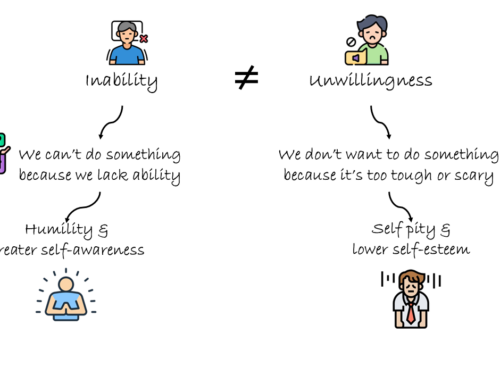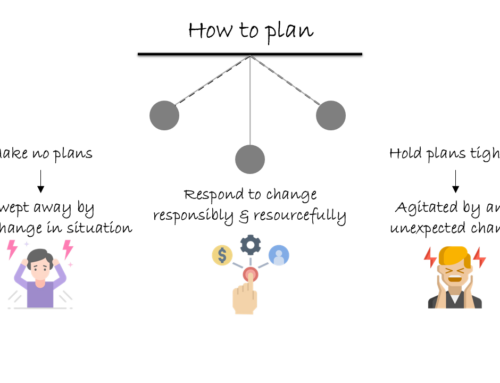When we are trying to discipline and elevate ourselves, we may resort to two unhealthy approaches toward emotions: suppress them or repress them. Although these two words can sound similar, they point to two distinct ways of dealing with inner negativity.
When we suppress an emotion, we prevent it from appearing openly at the physical level for others to see. For example, we may feel enraged due to some provocative behavior by someone, yet we may maintain a composed exterior. Our inner world is like a state ruled by a political leader who silences all dissenters. When we suppress an emotion, we are at least aware of the effect of the emotion — for example, our urge to scream or wave our fist — and its broad cause: for example, the other person’s scornful looks and words.
However, when we repress an emotion, we bury it so deep inside ourselves that we may no longer be aware of its cause. For example, if anger is repressed, it may over time poison our psyche, leading us to be constantly irritable without any apparent reason. Sometimes, abusive behavior we encountered years or decades ago may have been repressed within us and it may surface as our surliness. In these situations, our inner world is like a state ruled by a super-tyrant who terrorizes the subjects so much that they don’t dare think of dissent, even though they sense that something is seriously wrong with the state.
The Bhagavad-gita (18.35) points to negative inner pathology when it outlines the behavior that characterizes determination in the mode of ignorance. Individuals who are thus infected are often morose — sometimes even without any external cause for their mood.
Suppressed emotions can be processed by talking with others and planning how to handle future provocation, as well as by consciously letting go of past hurts. However, deeper inner work is required when emotions are repressed and we are not aware of the specific causes. Thankfully, spiritual wisdom provides us powerful tools for introspection and purification through which we can recover from our inner wounds and rise toward holistic spiritual health.
Summary:
When an emotion is suppressed, we are aware of its effect and its cause, thereby allowing us to process it appropriately and free ourselves from it; when an emotion is repressed, however, we are unaware of both its effect and its cause, thereby making freedom from it much tougher.
Think it over:
- What does suppressing emotions mean?
- What does repressing emotions mean? How is it different from suppressing emotions?
- In what ways are the means for dealing with repressed and suppressed emotions similar and different?
***
18.35: And that determination which cannot go beyond dreaming, fearfulness, lamentation, moroseness and illusion – such unintelligent determination, O son of Prutha, is in the mode of darkness.
Audio explanation of the article is here: https://gitadaily.substack.com/p/suppressing-emotions-vs-repressing

To know more about this verse, please click on the image





🙏🙏🙏🙏🙏🙏🙏